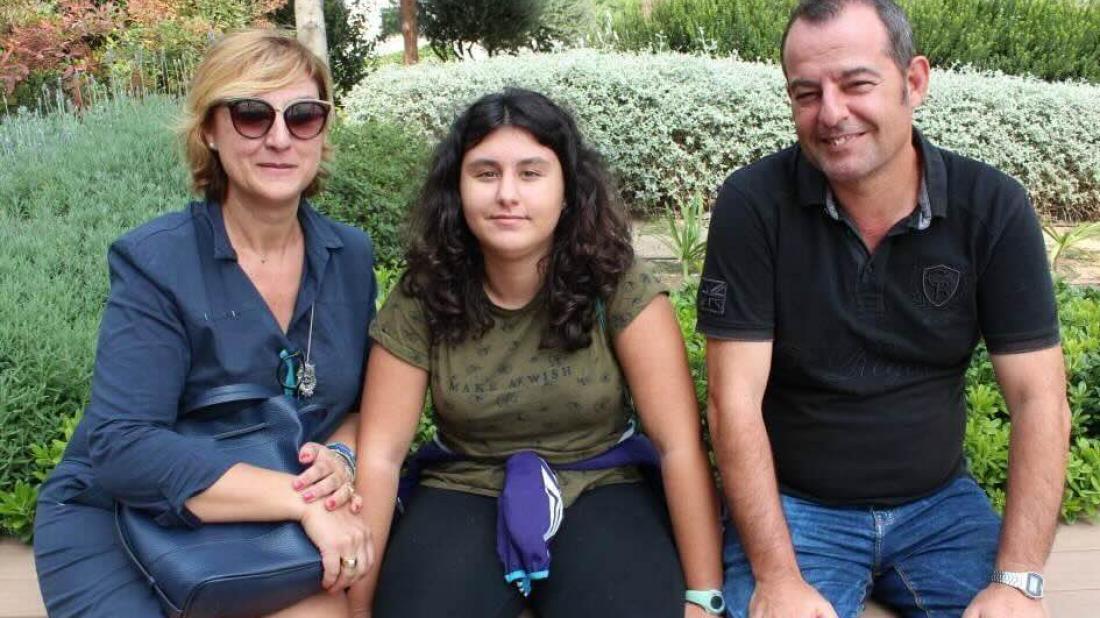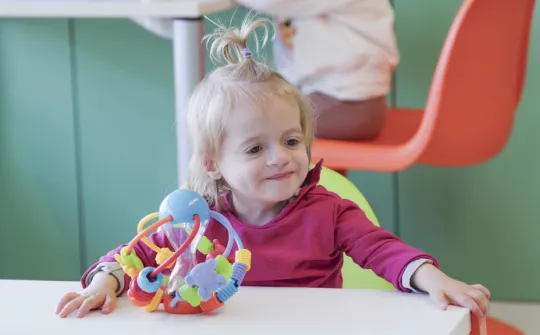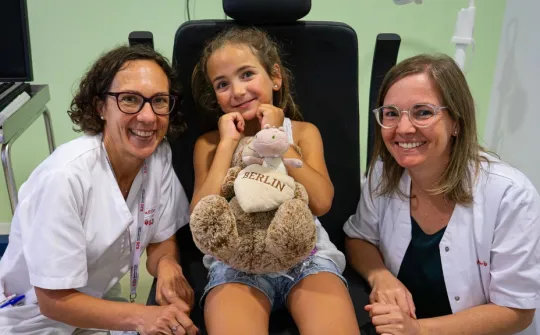
The patient suffered from herpes viral encephalitis followed by anti-NMDAR encephalitis. The disease subsided with immunotherapy treatment prescribed in the Neuroimmunology Unit at SJD Barcelona Children’s Hospital
Marta’s first symptoms of viral encephalitis began in April 2016. The 12-year-old led a normal life when she started suffering from speech impairment with no known cause. In just a few days her situation quickly worsened; she started to have a fever and stopped talking. She was admitted to the intensive care unit at her referral hospital, near Orihuela (Alicante), where she received treatment for encephalitis caused by the herpes simplex virus.
Although this disease can cause irreversible damage, in Marta’s case it was not serious and after completing treatment she was discharged. “The doctors told us she had been cured, but but I noticed that something was happening to my daughter” explained Fuensanta, the patient’s mothers and a nurse for 25 years.
A few weeks after returning to normal, Marta had an anxiety attack and suffered from speech problems again, which this time were aggravated with walking difficulties and behaviour disorders. The patient was readmitted to the intensive care unit at her referral hospital and within days her condition worsened. Marta’s mother tells how her daughter seemed to improve with the first treatments, but it wasn’t enough:
My daughter had ended up like a 12-year-old baby; she couldn’t talk, walk or eat by herself.
Coincidentally, Marta’s family knew someone whose daughter had suffered from encephalitis and recommended contacting the SJD Barcelona Children’s Hospital. “In June 2016 I contacted Josep Dalmau and he referred me to Thaís Armangué . “I knew from the first moment they were going to cure my daughter,” says Fuensanta.
Marta suffered from encephalitis again, but this time it was caused by her own defences which were overstimulated by the viral infection she had suffered in the previous weeks and had caused an immune attack on the brain. It was only a few years ago that the Neuroimmunology Programme team from Hospital Clínic and the SJD Barcelona Children’s Hospital had discovered this association. This allowed Marta to be diagnosed and start immunosuppressive treatment.
Treatment for anti-NMDAR encephalitis
The Neuroimmunology Unit at SJD Barcelona Children’s Hospital studied the case and recommended performing a new antibody test in the IDIBAPS - Hospital Clínic laboratories . Thus it was found that much of Marta’s cognitive and behavioural problems were caused by persistent inflammation due to anti-NMDAR encephalitis.
After confirming the diagnosis, Dr Armangué prescribed a type of immunotherapy different to that which had been administered until then. “It was decided to escalate the treatment to a more aggressive type of immunotherapy“, explains the neuroimmunologist. This treatment prescribed from Barcelona was administered to the patient in her hometown, with coordination between the medical teams in Alicante and Barcelona . The multidisciplinary follow-up was subsequently carried out at the SJD Barcelona Children’s Hospital.
From the very first immunotherapy session the change was spectacular.
This is how Fuensanta describes her daughter’s response to the therapy, which she has now completed and thanks to which she has made great improvement. Marta continues to make regular visits to our hospital so our specialists can check her physical, psychological and cognitive progress. However, the teenager no longer needs to follow any treatment.
“She’s started to paint again, something she always liked”, her mother happily explains. Fuensanta assures us that, when Marta makes a full recovery, they plan to travel to London again and start a blog to contact other affected families with one goal: “We must offer social support when they are going through critical moments, we want to help children like our daughter”.








